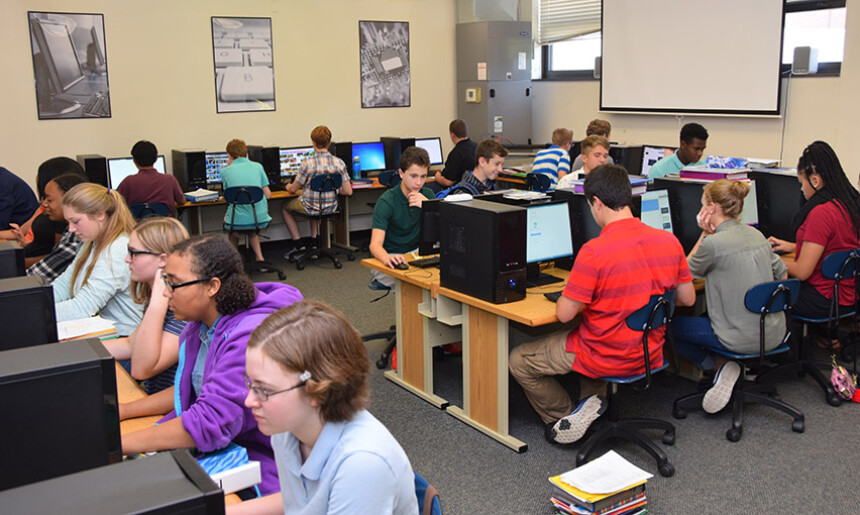Science and Mathematics
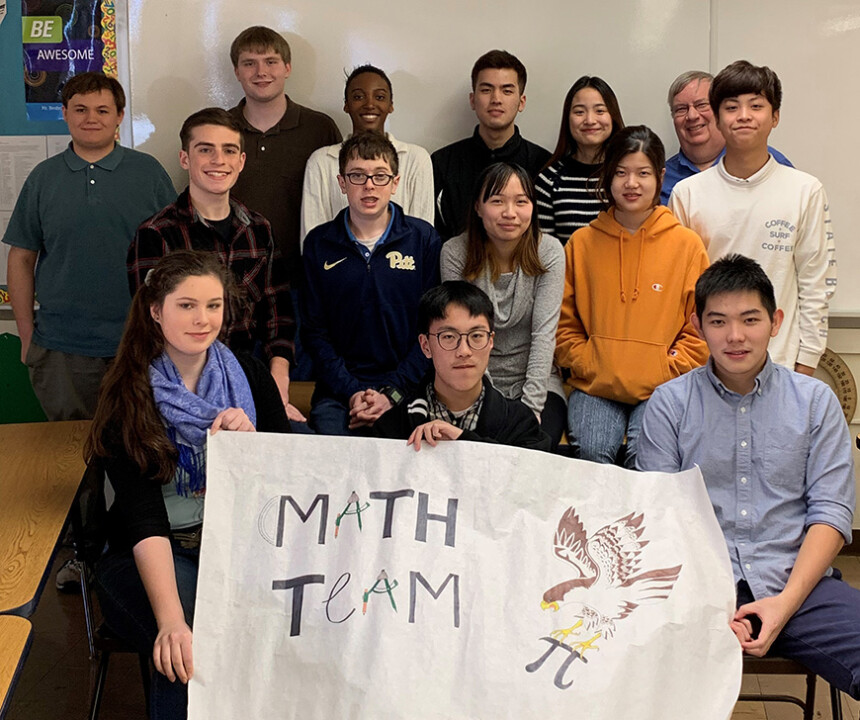
Trinity Christian School greatly emphasizes the importance of science, mathematics, and technology. At TCS we encourage curiosity, discovery, critical thinking, and, ultimately, mastery of skills in the science and math fields. We do not shy away from scientific research, we encourage it and study it, understanding that God is the Great Scientist.
Emphasis on Hands-On Learning and Experimentation
Individual science projects and reports begin in first grade with a fall leaf project and continue throughout all grades, fostering a “deeper dive” into scientific topics of interest.
SCIENCE EXPERIMENTS IN SECOND GRADE
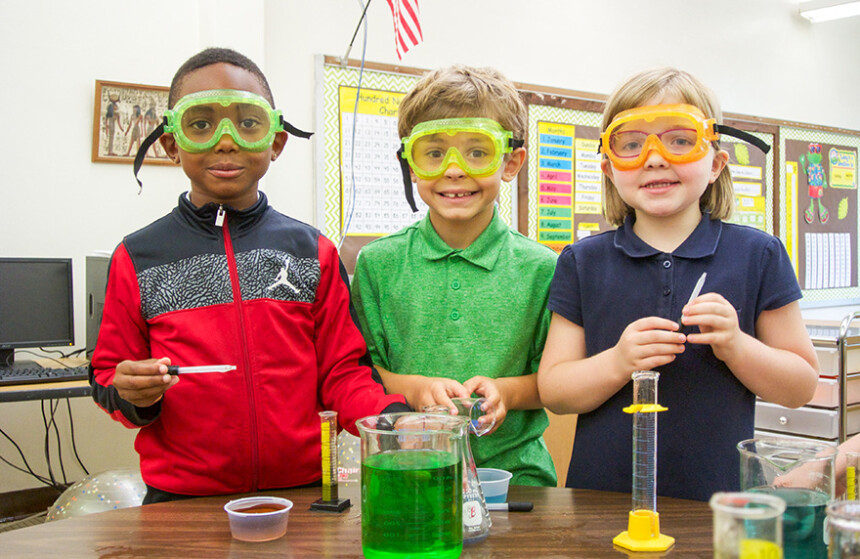
RUBE GOLDBERG MACHINE PROJECT IN EIGHTH GRADE
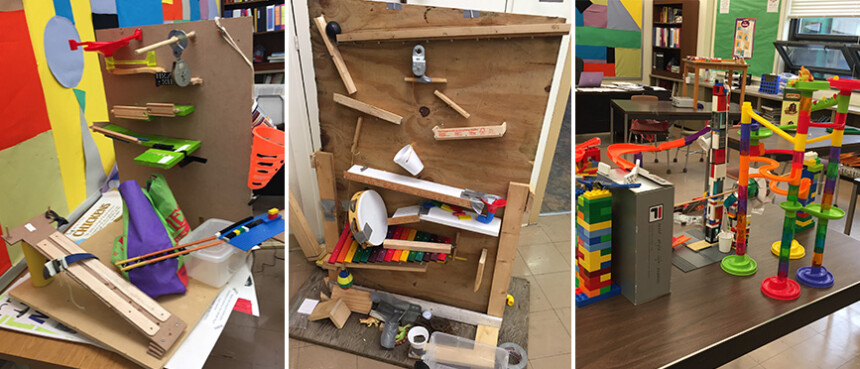
AP Calculus and Dual-Enrollment Calculus (offered in partnership with Geneva College)
More information on these courses can be found on the College Preparation and Guidance page.
High School Mathematics League
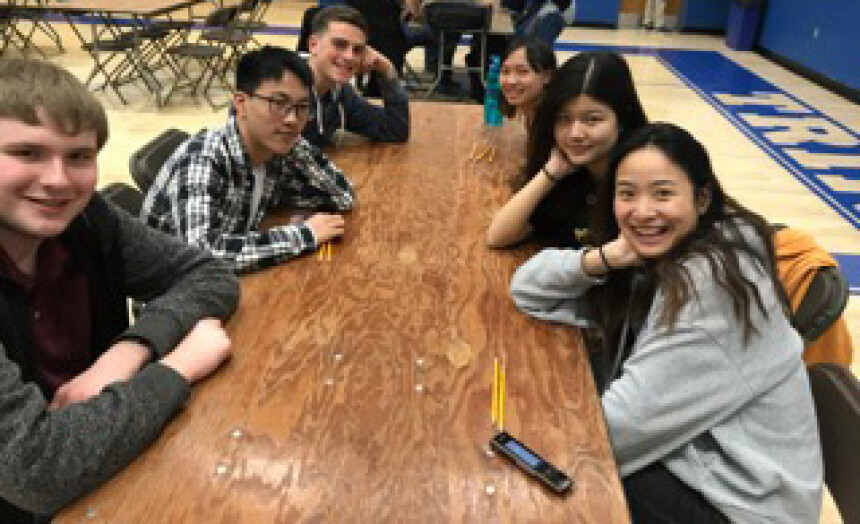
TCS has a competitive high school math team that participates in the Western Pennsylvania Mathematics League of the Mathematics Council of Western Pennsylvania. In 2018-2019, 14 students competed in 2 TCS teams in the regular season, which consisted of 6 regular season meets in which 27 schools of all sizes sent 113 registered teams.
By placing in the top 12 overall, TCS' top team qualified for the finals. TCS was both the smallest and the only Christian school represented and placed 10th overall at the finals. All interested high school students are invited to participate.
ACSI Math Olympics
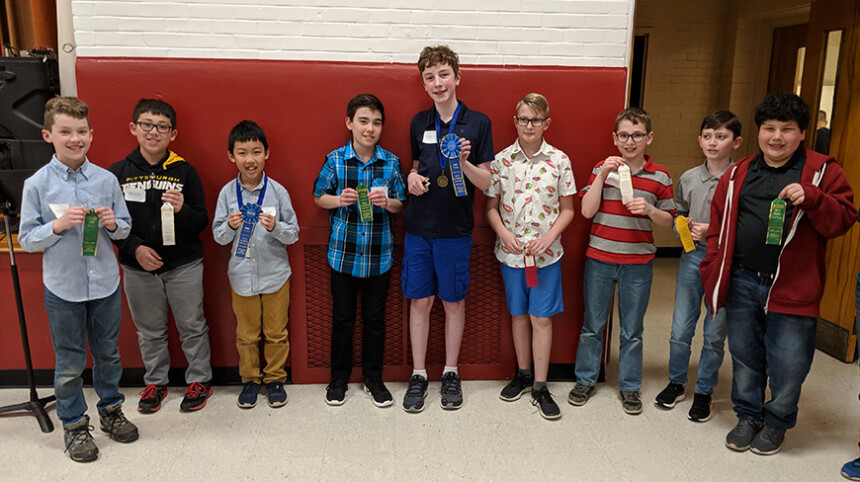
The Western PA ACSI Math Olympics are held annually for students in grades 3 through 8. Qualifying TCS students compete in either computation or reasoning tests against students from other Western PA ACSI schools. In 2019, 9 TCS students placed in the top 5 in their grade and category, and two TCS students received first place ribbons and medals for scores above 85%.
Science Olympiad
The Science Olympiad competition is fun and promotes education through hands-on teamwork. Each year Trinity Christian School sends fifteen high school students to compete in the annual Western Pennsylvania Science Olympiad competition, which hosts about 40 private and public school teams. The Science Olympiad competition is like an academic track meet, consisting of 23 team events chosen from the fields of genetics, earth science, chemistry, anatomy, physics, geology, mechanical engineering, and technology.
Each student competes in two or three events, pairing up with another student for each of those events. Some events (e.g., structural towers, or helicopter design) require preparation of a model or device ahead of time that is brought to the event and entered competitively. Other events (e.g., rocks and minerals, or anatomy) require study and thoughtful compilation of information beforehand that may be used to identify subject features during the competition. Other events (e.g., chemistry lab, or thermodynamics) require lab work and test-taking. At least one event, the popular, “Write It-Do It,” is an on-the-spot competition that cannot be rehearsed or prepared for ahead of time. Events are judged and medals are given to the top three finishers of each event.
STEM Club (Science Technology Engineering Mathematics)
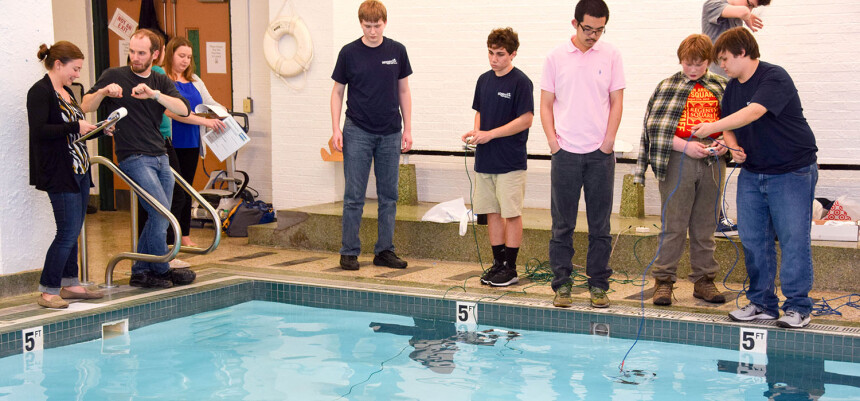
High school students in the STEM club meet weekly to develop skills common to all technical fields – analyzing a process, identifying inefficiencies, and designing improvements – through participation in SeaPerch. SeaPerch is an underwater robotics program sponsored and funded by the Office of Naval Research (see www.seaperch.org). Bettis Laboratory in West Mifflin supports the program by providing tools, materials, fees, in addition to sending engineers to mentor the student teams each week.
Student teams each build an initial “stock” submarine. Based on published competition guidelines, each team performs a design process to improve their design and meet the challenge. The modified robots are tested and refined in a local swimming pool. The final design balances speed to navigate through an underwater obstacle course with agility to manipulate rings and blocks on a puzzle platform. The best teams represent Trinity and compete in a Pittsburgh regional competition, with the possibility of moving forward to a national competition later in the year. If you are interested in joining, contact Mr. Matta or Mr. Bindschadler.
The club also schedules field trips to local engineering and technology institutions.
Video overview of SeaPearch program
Computer Lab
